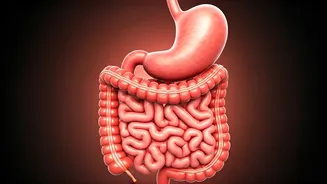Understanding Bloating Causes
Bloating, characterized by a feeling of fullness and abdominal distension, is a frequent digestive complaint. Several factors can contribute to its occurrence.
One primary cause involves gas accumulation within the gastrointestinal tract, often resulting from swallowing air during eating or drinking. Additionally, the fermentation of undigested carbohydrates by gut bacteria leads to gas production. Furthermore, conditions such as irritable bowel syndrome (IBS), constipation, and food intolerances can worsen bloating. Dietary choices also significantly impact bloating; consuming high-sodium foods, carbonated beverages, and certain foods that generate gas (like beans and cruciferous vegetables) can exacerbate symptoms. Hormonal changes, particularly during the menstrual cycle, might also contribute to increased bloating for some individuals. Recognizing these diverse causes allows for a more focused approach to managing and alleviating this discomfort. Proper identification is crucial for applying appropriate strategies.
Eat Mindfully and Slowly
One of the simplest strategies to tackle bloating involves eating mindfully and slowly. Rapid consumption of meals often leads to swallowing more air, increasing the likelihood of gas accumulation in the digestive tract. Eating slowly gives the digestive system ample time to break down food efficiently. Focusing on each bite, savoring flavors, and being fully present while eating helps to reduce air ingestion. Moreover, mindful eating can also prevent overeating, a common cause of digestive distress. This practice also boosts the digestive processes, thereby minimizing instances of bloating. By paying attention to fullness cues and avoiding distractions during meals, such as watching television or working, individuals can naturally adopt better eating habits and reduce bloating. This simple shift in behavior can lead to considerable improvements in overall digestive wellness.
Stay Hydrated and Hydrated
Maintaining adequate hydration is crucial for overall digestive health and effectively combats bloating. Drinking sufficient water supports the smooth movement of food through the digestive tract, aiding in the prevention of constipation, which is a significant factor in bloating. Water also helps dissolve nutrients, facilitating their absorption and minimizing the potential for gas build-up. Aiming to drink several glasses of water throughout the day keeps the digestive system functioning optimally. It is important to increase water intake, particularly when increasing fiber consumption. Dehydration can worsen bloating; drinking adequate fluids keeps everything moving smoothly. Integrating water into your routine, such as by carrying a water bottle and sipping water regularly throughout the day, can substantially support the prevention of bloating and promote a healthier gut.
Limit Sodium Intake
Reducing sodium intake plays a crucial role in reducing bloating. High-sodium foods can result in water retention, causing a bloated feeling. Sodium draws water into the body, particularly in the abdomen, leading to bloating. Processed foods, fast foods, and many packaged meals often contain high levels of sodium. By decreasing your consumption of these foods, you can significantly reduce the amount of sodium consumed. Read food labels carefully and try to select low-sodium alternatives. You can season your meals with herbs and spices instead of salt. By adopting this approach, you can effectively minimize water retention and significantly reduce bloating. This simple dietary adjustment can result in improved digestive comfort and a reduced feeling of overall puffiness.
Manage Fiber Intake
While fiber is vital for overall health, managing your fiber intake is important for preventing bloating. A sudden increase in fiber can cause bloating and gas, as the body adjusts to processing larger amounts. Ensure that you gradually increase your fiber intake, allowing your digestive system to adapt slowly. Drinking plenty of water is also critical when increasing fiber intake, as it aids in the smooth movement of fiber through the digestive tract. Some people may find that certain types of fiber, such as those found in beans and some vegetables, trigger more bloating. If you find this to be the case, you may need to adjust the sources of fiber in your diet. By gradually increasing fiber intake and staying well-hydrated, you can get the benefits of fiber without the discomfort of bloating. This gradual approach supports better digestion and overall digestive health.
Consider Probiotics and Supplements
Probiotics and certain supplements can support gut health and aid in reducing bloating. Probiotics introduce beneficial bacteria to the gut, potentially improving the balance of gut flora. These beneficial bacteria assist in the digestion process, which can reduce the production of gas and the likelihood of bloating. Various probiotic supplements are available, including those found in fermented foods like yogurt, kefir, and sauerkraut. Digestive enzymes can assist the breakdown of food and reduce gas production. Furthermore, supplements such as alpha-galactosidase may aid digestion of complex carbohydrates and reduce bloating. However, it's always best to consult a healthcare professional before starting any new supplement, especially if you have existing health conditions. Integrating probiotics and potentially supplements under professional advice can be a proactive way to maintain gut health and lessen bloating.
Exercise Regularly
Regular exercise contributes significantly to digestive health and helps prevent bloating. Physical activity can stimulate the muscles in the digestive tract, promoting better food movement through the system. This can reduce the time food spends in the gut, thereby lessening the chances of gas production and bloating. Exercise also improves overall metabolic function, which can improve digestive processes. Simple forms of exercise, such as walking, jogging, or cycling, are beneficial. Even moderate exercise, like a 20-30 minute walk after meals, can aid in digestion. Regular physical activity has multiple health benefits that also include reducing stress, which can positively impact digestion. Regularly incorporating exercise into your routine is a simple and effective strategy for promoting digestive health and reducing the discomfort of bloating. Prioritize any form of exercise you enjoy, and aim for consistency to maintain the digestive benefits.


















![[WATCH] 'Real Madrid, Ramadan and rest' - Mohammed Siraj how last-minute World Cup call-up changed February plan](https://g-mob.glance-cdn.com/public/fc/image/ByYT_LEmlrD0.webp)



